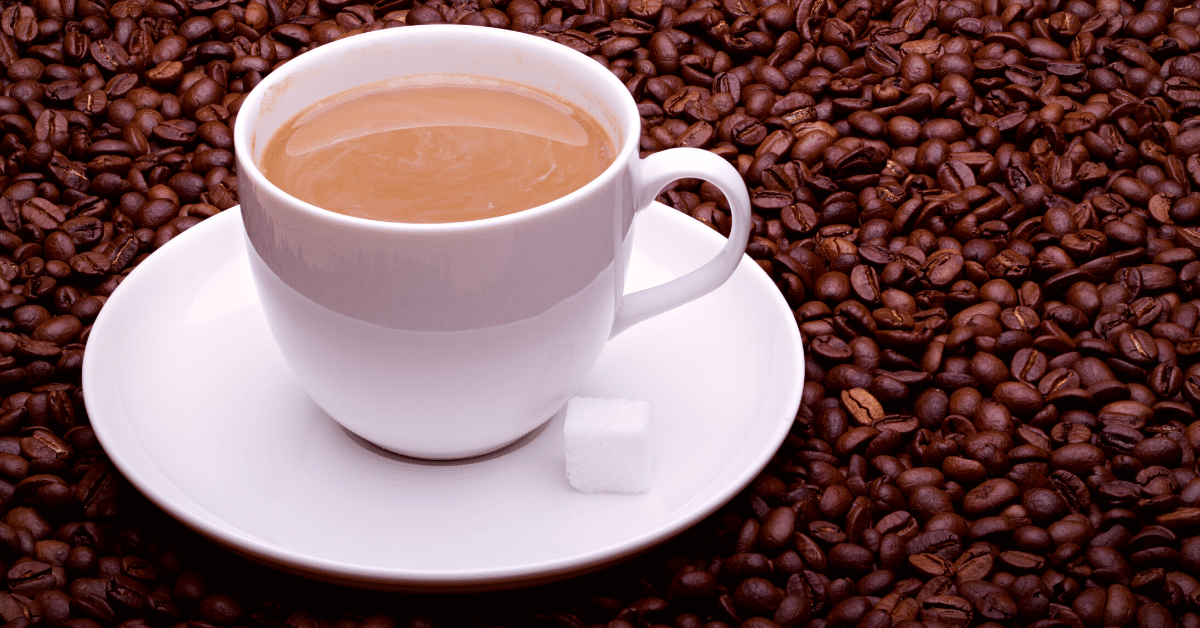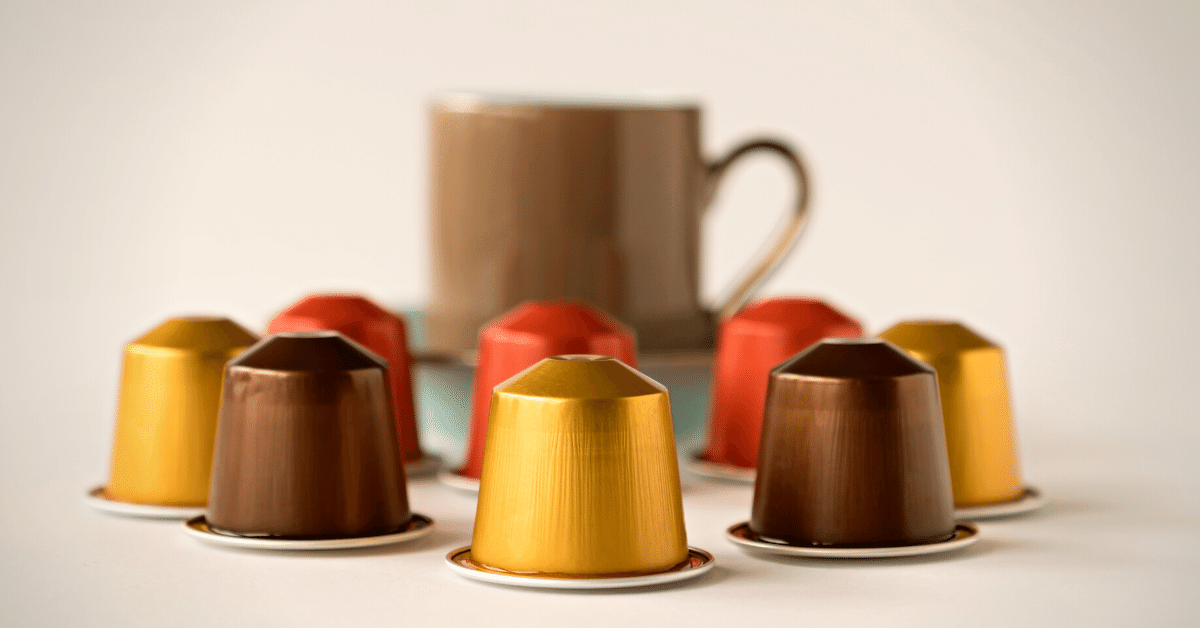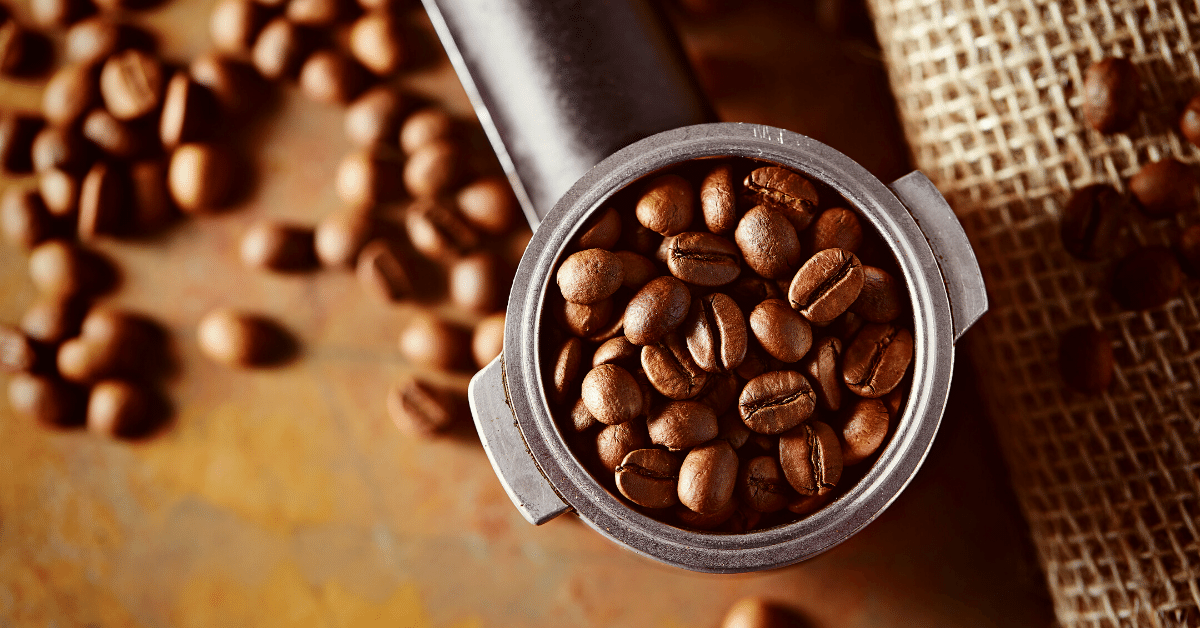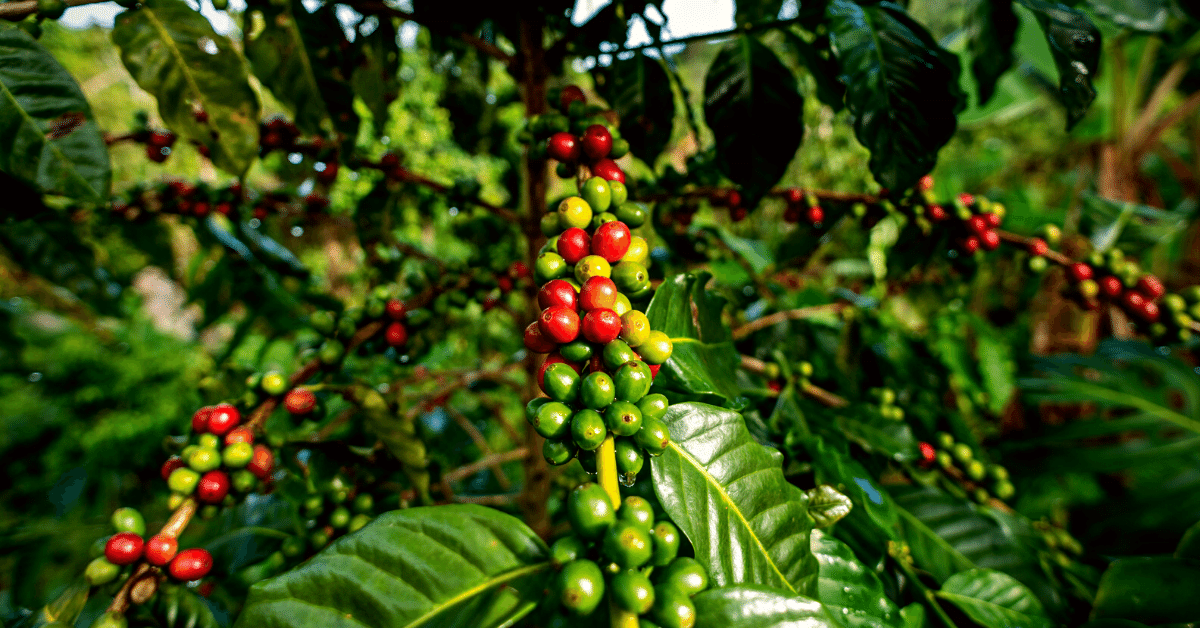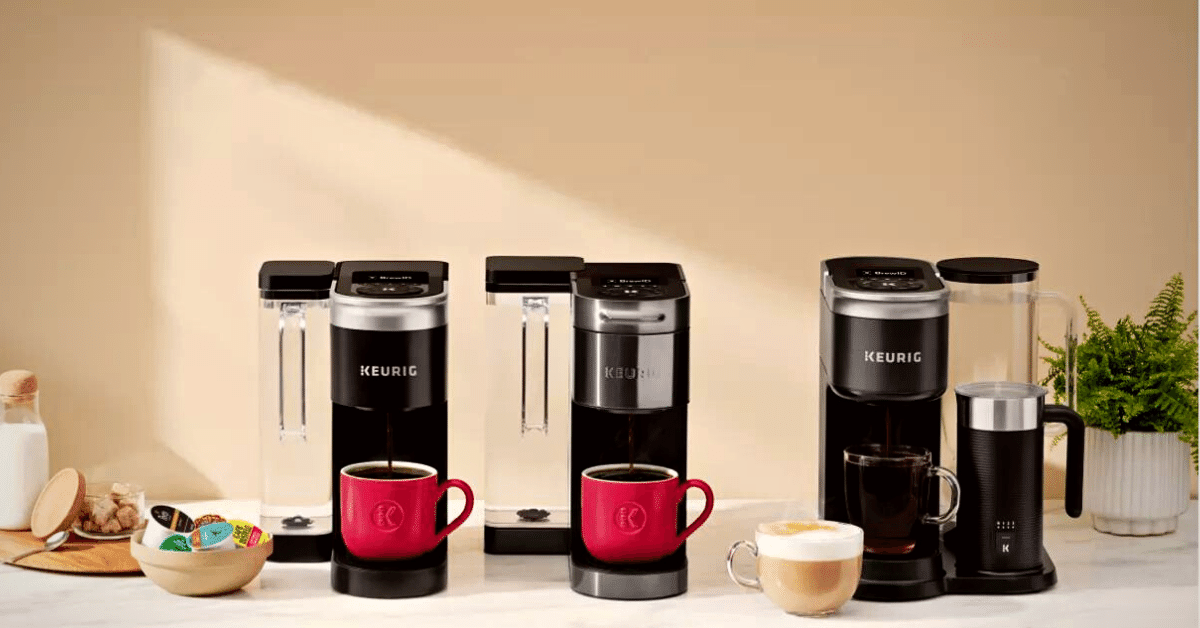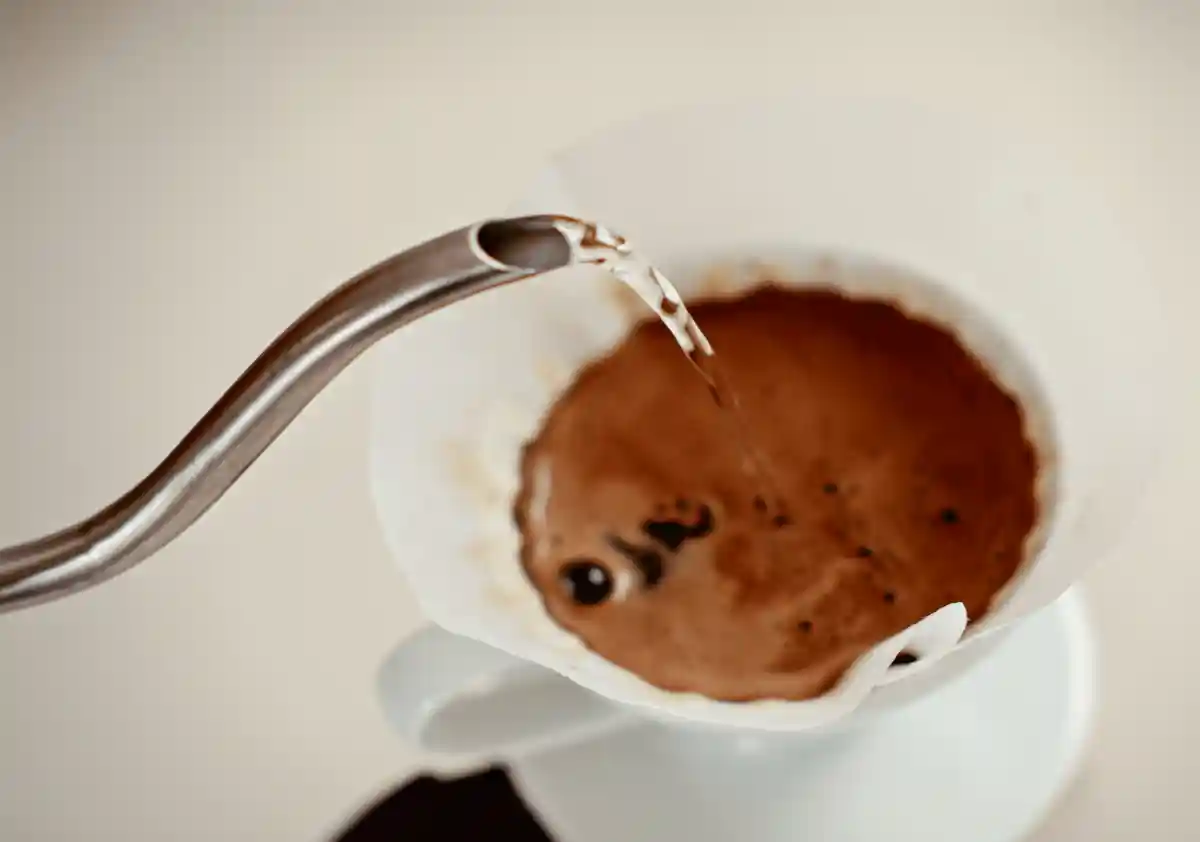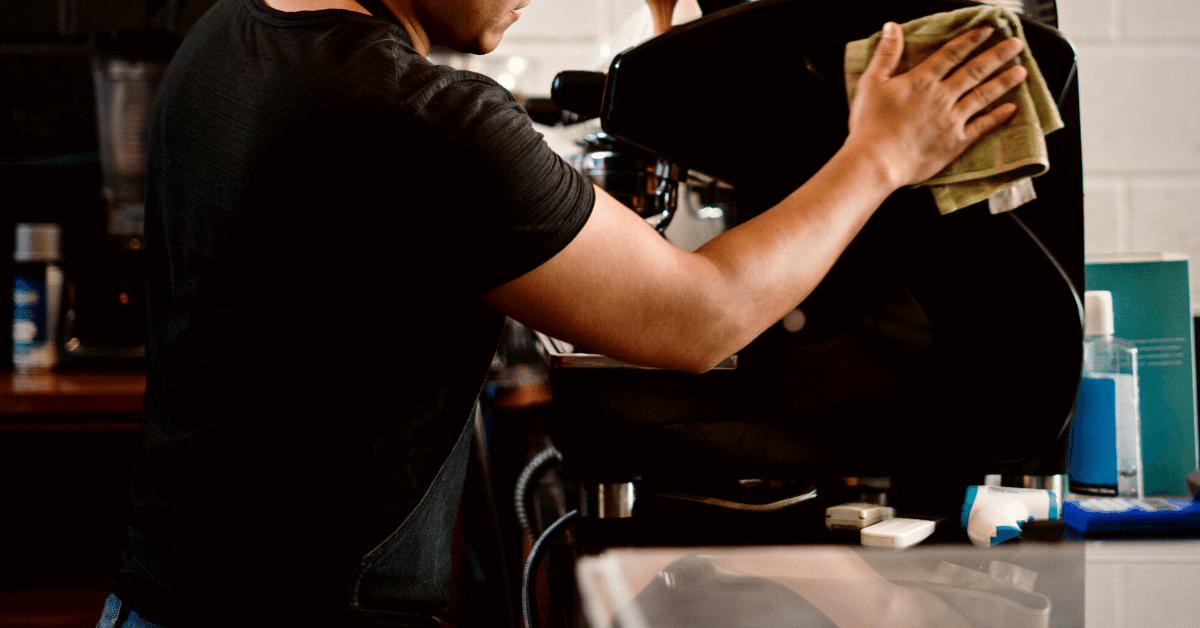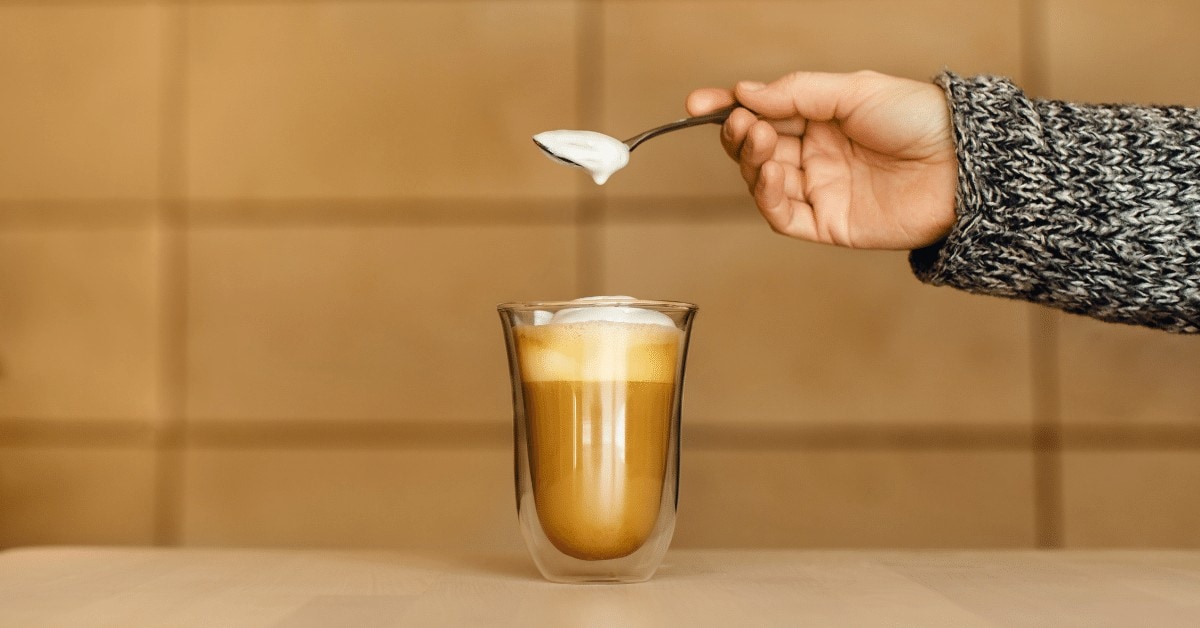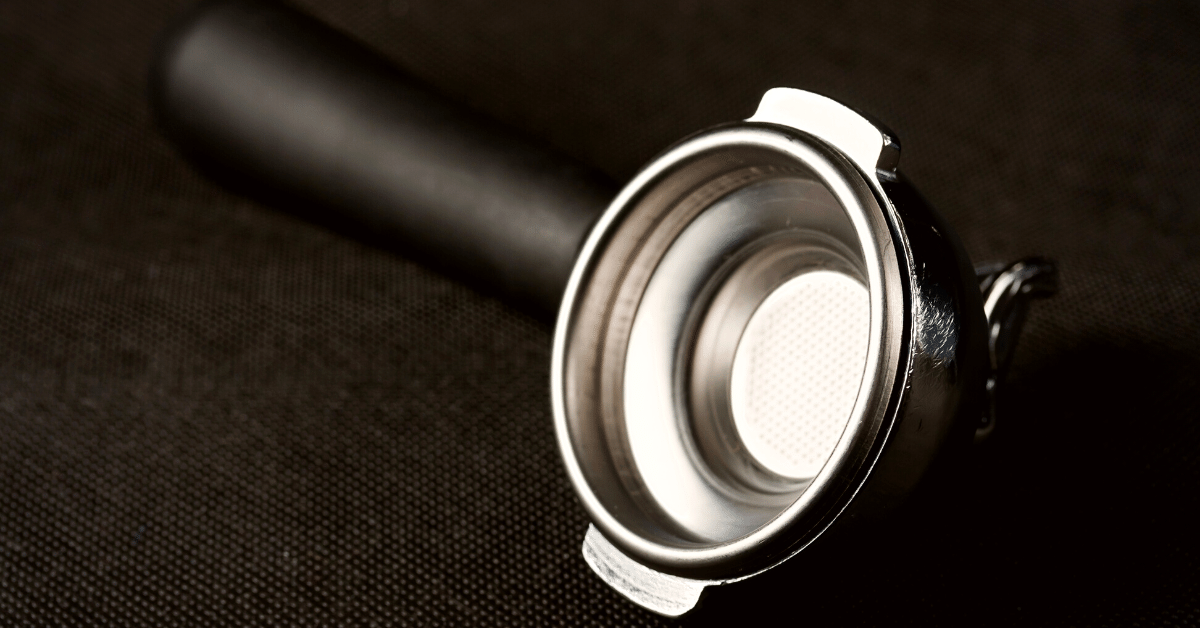Do you want to brew coffee with milk? Jump into our article and find out if you can use milk instead of water to brew coffee and how to do it properly.
Not a big fan of black coffee?
If that’s the case, you’ve probably asked yourself if you can brew coffee with milk.
I know I did!
That’s why I did thorough research on the subject.
And the answer is yes, but only if you use the immersion method.
Stay with me, and I will tell you how you can use the French press or make a cold brew delight with milk instead of water.
Let’s dive in!
Can You Brew Coffee With Milk
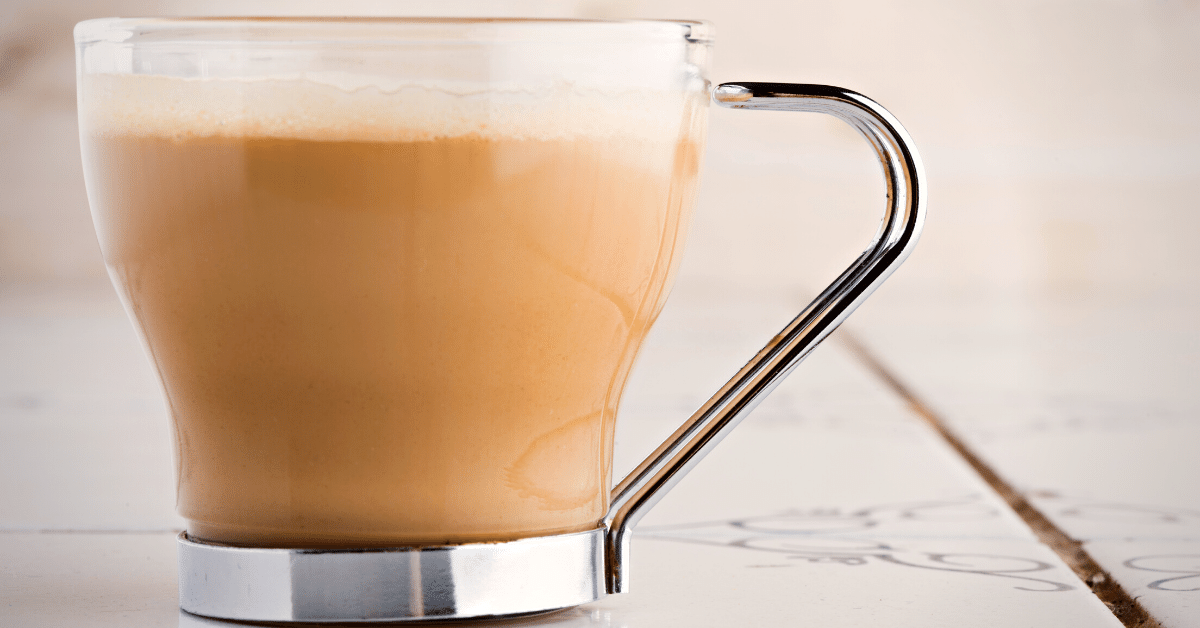
So, can you use milk instead of water to brew your coffee?
Seams possible, right?
Well, it actually depends on which method of brewing you are using.
The first thing to know, dairy milk is different than water. Although it’s 87% water, it’s not just a liquid.
Milk also contains:
- protein
- fat
- carbohydrates
- sugars
- vitamins and
- minerals
The problem with this is that all of those are sensitive to temperature changes. At warmer temperatures, milk starts curdling.
If you boil your milk too fast, fats and proteins will burn. And in no time, your kitchen will be full of smoke and that recognizable smell of burnt milk.
The optimal brewing temperature for coffee is somewhere between 195°F and 205°F. But, it’s best to heat milk to 150-160°F.
What does that mean?
It means that your coffee ground needs to be in contact with milk longer if you want to extract all the flavors.
This leaves us with the French press and immersion method!
With these two techniques, you can easily swap water for milk and make a fantastic milky brew.
NOTE
Plant-based milk can mess up your coffee maker in the same way as regular milk. It doesn’t contain lactose or cholesterol and almost any saturated fat. But it does have sugars and protein. So, it will also become sticky and burn easily when you warm it.
How To Brew Coffee With Milk
Got you interested?
Now, I’ll give you instructions on how to brew excellent milk coffee.
French press
Do you have a French press somewhere in the back of your kitchen cabinet?
Dig it out because we’re going to brew French press coffee with milk.
First, heat up milk maximum of up to 160°F.
We usually use medium-coarse to coarse grind size for French press. But, since the milk will be less hot than the water temperature we’re using for the French press, coffee will taste weaker.
To extract more flavor, you can use a finer grind size.
The coffee and milk ratio should be about 1:15.
Of course, you can adjust the amount of ground coffee depending on which type of coffee and milk you use:
- If the coffee you’re using is too mild, try adding a little bit more coffee ground.
- If your favorite coffee already has sweet tones, it could be too sweet in combination with milk. In that case, try some other coffee with more bitter or citrusy notes. Experiment!
PRO TIP
Since coffee brewed with milk will taste sweeter than usual, you can use dark roast to balance it out. The sharper taste of dark roast won’t let the milk overpower the coffee.
When you add the warm milk to the coffee ground, leave it steeping for about 4 minutes. Press the plunger to remove the grounds from your brew when the time comes.
Milk–brewed coffee in a French press should be creamy and dense. Most likely, you’ll have some coffee sediments floating, but it will only add to the texture and taste.
The beverage will be sweet, with a dominant milky taste. It will reduce the bitterness of coffee but won’t overpower its unique flavors.
Cold brew coffee
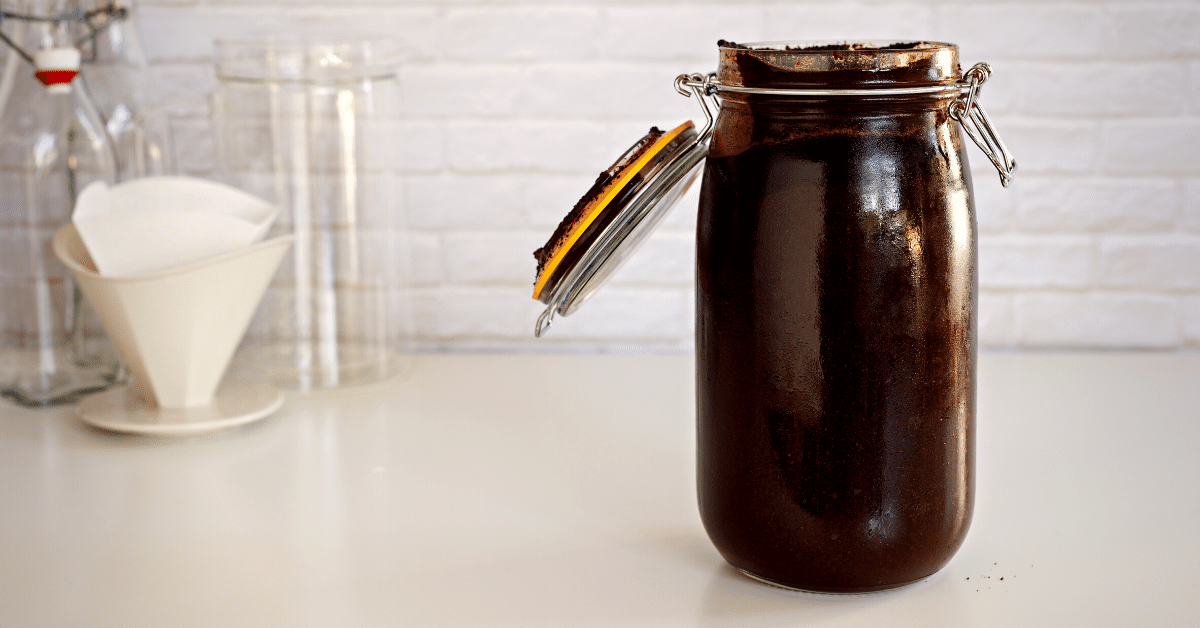
Do you think ahead of your next morning coffee?
Excellent opportunity to prepare yourself a cold brew.
Cold immersion can be another way to brew coffee with milk, especially if you don’t have a French press. All you need is a mason jar and strainer.
When it comes to the choice of coffee beans for cold brew coffee, the dark roast will go better with the sweetness of the milk.
This beverage tastes similar to regular cold brew coffee, but it is sweeter and creamier thanks to milk.
PRO TIP
Regularly, we would use coarse grind size for cold brew, but you can also use medium-coarse when you brew with milk. That way, you’ll get more of the flavors.
And now, look closely:
When you soak the coffee ground, stir it well and leave it in the fridge for at least 12 hours.
Although regular cold brewing can be done in 8 hours, milk doesn’t extract so much of the coffee flavor. So leave it to soak longer for a stronger taste.
Make sure you leave it to rest in the fridge and not on the countertop. Milk can easily turn sour at room temperature.
NOTE
Add some ice cubes to your brew, and you will get a delicious milky iced coffee. You can even add some flavored syrup for additional sweet decadence!
Instant coffee
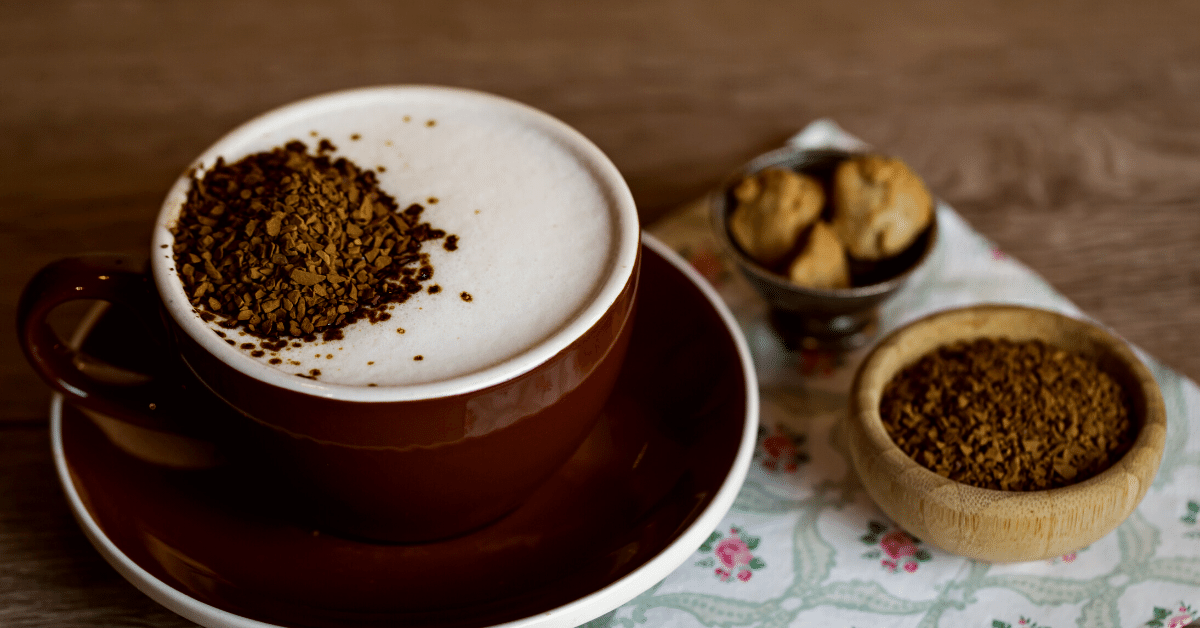
And, of course, you can prepare instant coffee with milk. This is a quick and easy solution if you’re in a rush.
Since instant coffee is already brewed (but dehydrated) coffee, you can prepare it with both warm and cold milk.
This is my go-to choice when I want sweet and milky coffee in a moment.
All you have to do is to mix instant coffee powder and milk. It will dissolve into milk in just a few moments.
It takes a little bit longer with cold milk, so you’ll have to stir it for about a minute or two to dissolve the coffee completely.
And the best part?
This one you can also make it iced. Drop some ice cubes and syrup (or even whipped cream????) into it, and you’ve got yourself a sweet treat!
TIP
You can also use a handheld milk frother. Coffee will dissolve faster, and you will get a nice frothy texture.
Brewing Methods That Don’t Work With Milk
Headed to your coffee machine with a jug of milk?
Stop right there!
Most common coffee makers aren’t suitable for brewing coffee with milk.
Let’s see why.
Coffee machines
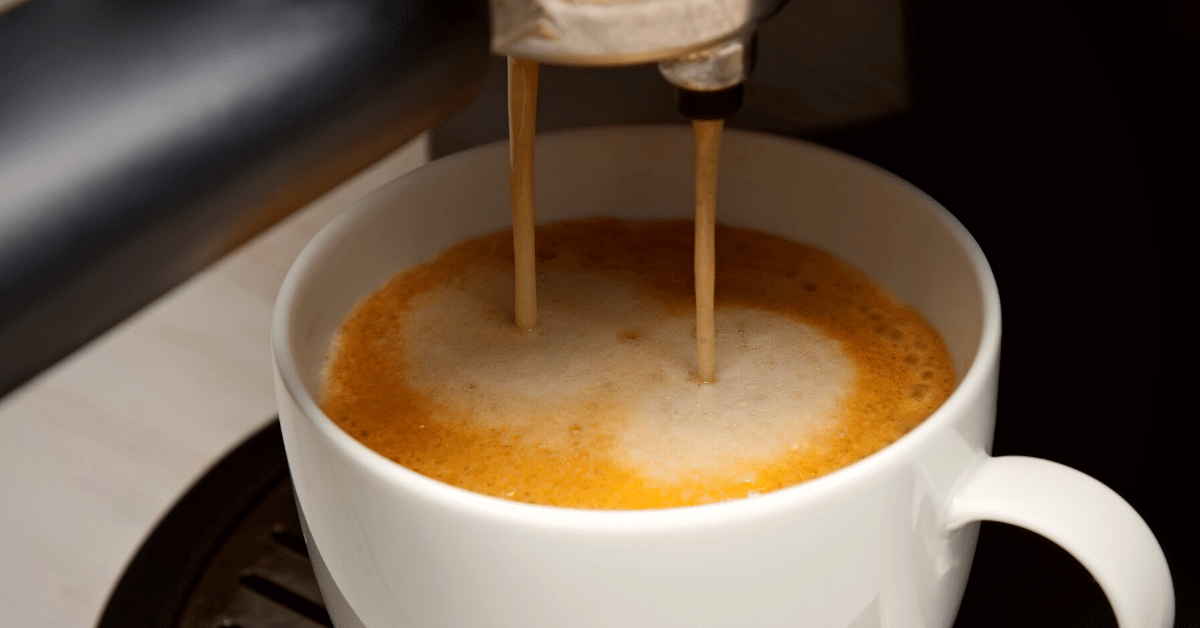
First to cross off the list, unfortunately, are all the electric coffee makers and espresso machines.
Sorry to tell you this, but you really shouldn’t be using milk instead of water in your Keurig machine.
These machines are made to heat water very fast. And that won’t work well with milk.
Milk will become sticky and can burn easily. You don’t want burnt milk leftovers inside your coffee maker because you will get mold in your machine. (Yuck!)
Pour Over
Pour-over coffee makers would also do a poor job.
Milk is much thicker than water. The filter can clog with all the fats from milk. And even if it doesn’t clog completely, you’ll have some messy excuse for coffee.
Also, this process is too fast, and you won’t get many flavors from the coffee.
Moka pot
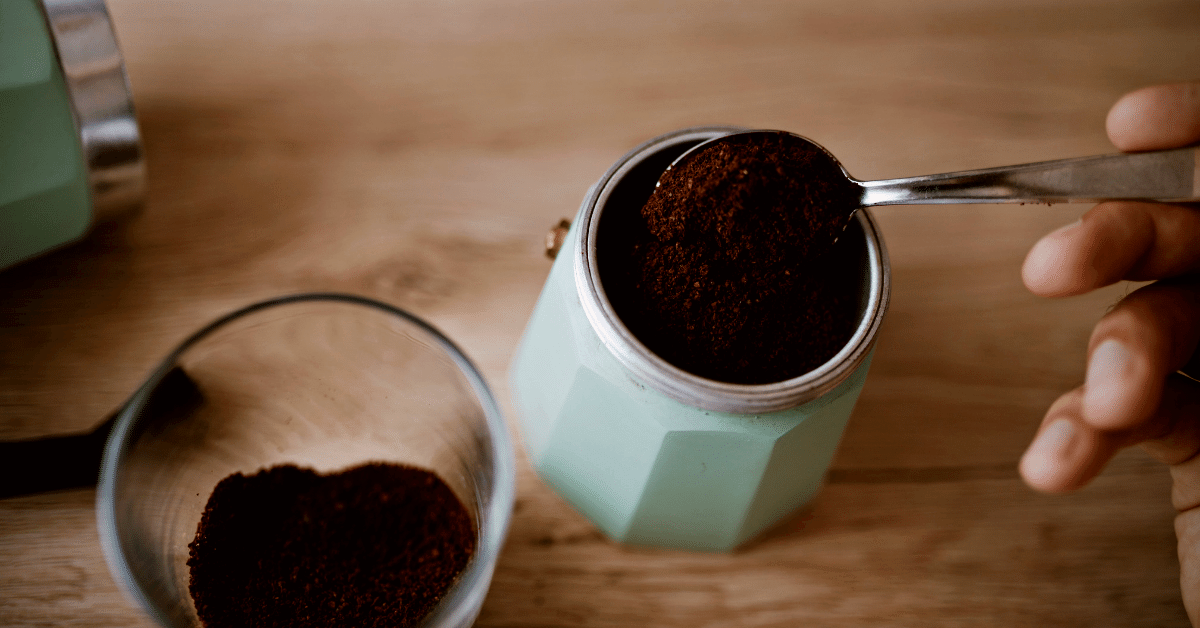
Moka pot also goes out, because of the temperature.
You see, Moka pot also works with high temperatures and heats up really fast.
That means the milk would definitely burn in it.
And the worst part?
Cleaning a Moka pot from burnt milk would be a real nightmare.
Percolator
The percolator is also made for the stovetop and works on similar principles as the Moka pot.
So, if you don’t want to ruin it, just prepare regular coffee in a percolator and add milk afterward.
My Final Thoughts
And there you have it.
Yes, coffee brewed in milk can taste amazingly sweet and creamy. But you cannot make it in any coffee machine.
Since milk can easily burn in high temperatures, you’ll need to brew your coffee at lower temperatures.
Because of that, the best options for brewing coffee directly in milk are immersion techniques, like a French press or cold brew. Or just mix instant coffee with milk and have a hot cup in a few seconds.
Want to try new coffee flavors? Here’s the list of the best coffees for brewing in the French press.

